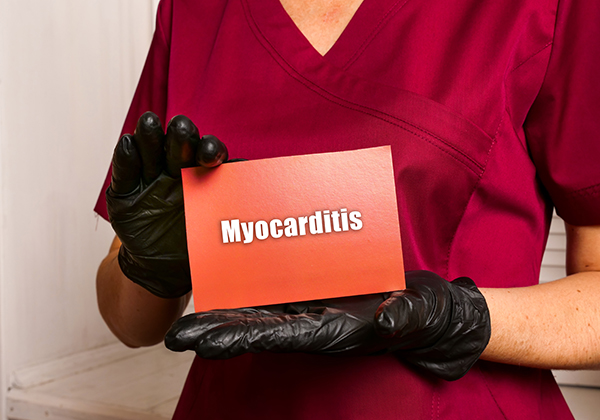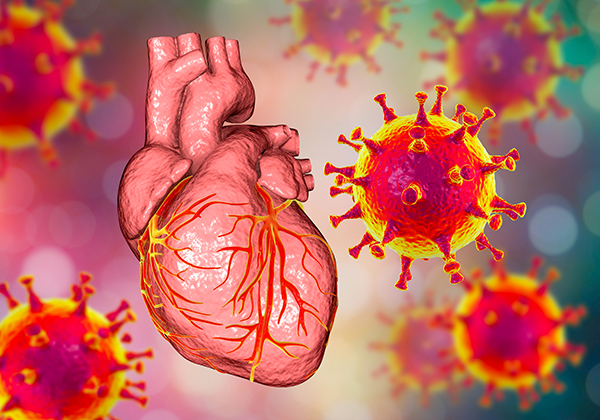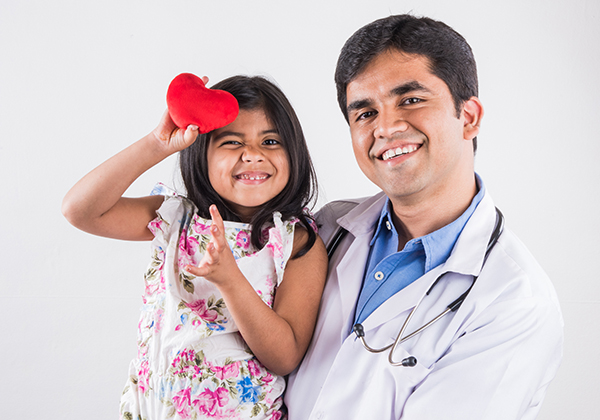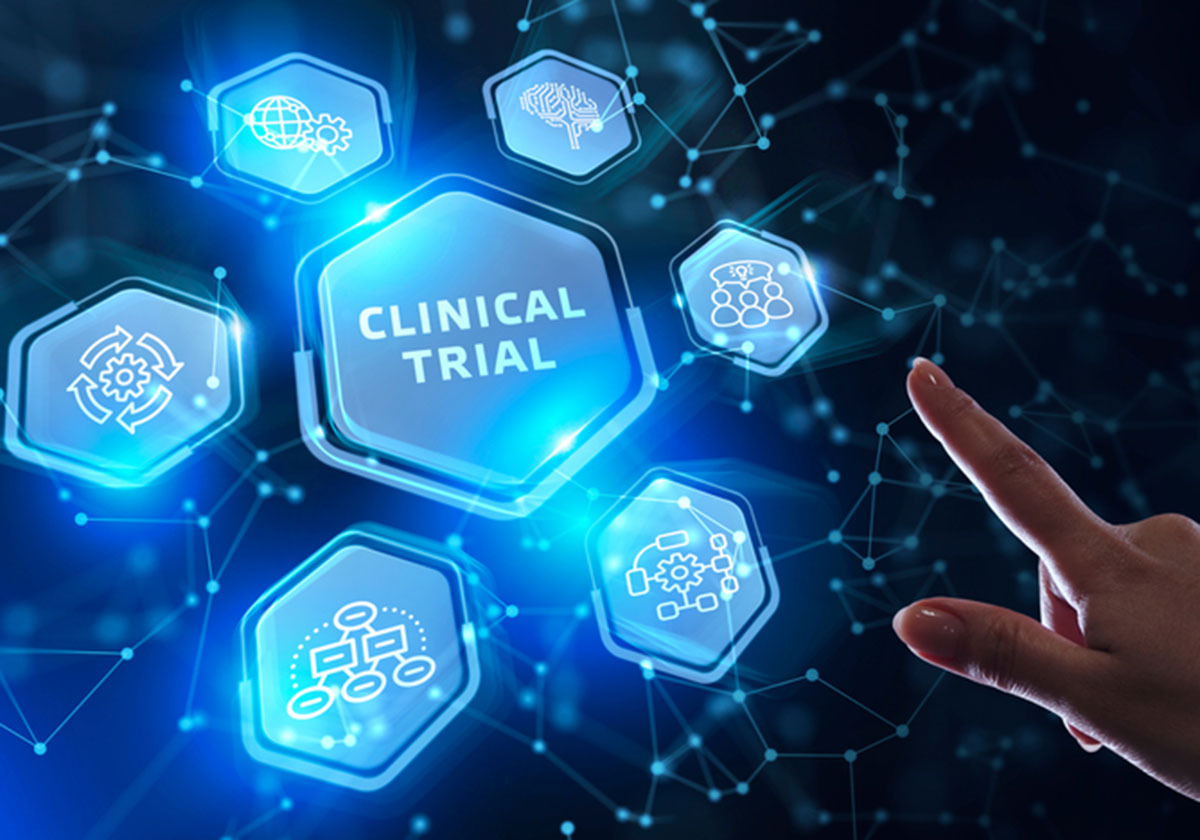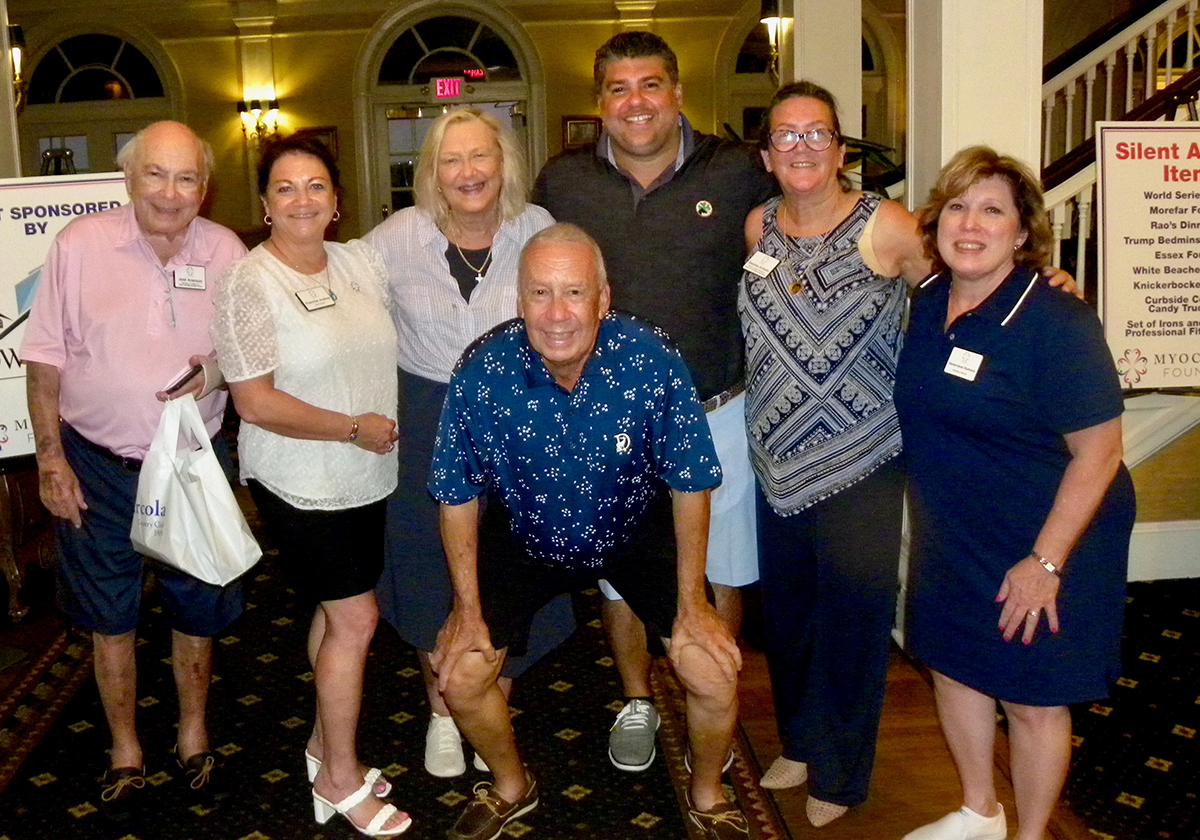(281) 713-2962
800 Rockmead Drive, Suite 155
Kingwood, TX 77339
[email protected]
Routine Cardiac Screening in Sarcoidosis Patients (PAPLAND)
Status: Recruiting
Location: Albany Medical Center, Cleveland Clinic, Medical University of South Carolina, National Jewish Health, Northwestern University Medicine, Penn Medicine, University of Cincinnati Medical Center, University of Illinois-Chicago, University of Iowa, University of Washington Medical Center
Conditions: Albany Medical Center, Cleveland Clinic, Medical University of South Carolina, National Jewish Health, Northwestern University Medicine, Penn Medicine, University of Cincinnati Medical Center, University of Illinois-Chicago, University of Iowa, University of Washington Medical Center
City/State:
Denver, Colorado
Chicago, Illinois
Iowa City, Iowa
Albany, New York
Cincinnati, Ohio
Cleveland, Ohio
Philadelphia, Pennsylvania
Charleston, South Carolina
Seattle, Washington
Contact Information:
Noopur Singh
312-341-0500 ext 107
[email protected]
Ginger Spitzer
773-328-8156
This protocol is an unblended randomized screening trial will have consecutive patients with no suggestion of cardiac sarcoidosis according to usual screening enroll in an enhanced screening protocol. The routine clinical care is to gather patient’s history of symptoms and under go an ECG. If a patient has an abnormal results in standard screening, they typically have further evaluations as part of their routine medical care. These tests might include an echocardiogram, ambulatory ECG, and advanced cardiac imaging (MRI, PET scan as per local practice). A patient that has normal results on standard screening will be randomly assigned to enhanced screening at each center. Half the patients will be randomized to usual follow-up (annual symptom assessment and ECG) and the other half will be assigned to the enhanced screening (echocardiogram and ambulatory ECG at enrollment and at 24 months).
The investigators hypothesize that screening using conventional history, physical and ECG in the general sarcoidosis population, followed by appropriate advanced imaging testing, will result in the identification of a higher percentage of ascertained cardiac sarcoidosis than has been reported historically (2-5%). The investigators hypothesize that routine use of echocardiogram with strain and ambulatory ECG will identify additional patients who will have advanced imaging abnormalities or who meet criteria for cardiac sarcoidosis. The investigators further hypothesize that re-screening patients after 24 months with repeat echocardiogram and ambulatory ECG will identify additional patients with suspicion for cardiac sarcoidosis who had no abnormalities on the standard screening tests.
Cardiac involvement is among the most feared complications of sarcoidosis, and it is the second leading cause of death from sarcoidosis. Autopsy studies and serial imaging studies in patients without cardiac symptoms suggest that approximately 25% of U.S. sarcoidosis patients have evidence of cardiac involvement. 3 Major manifestations of cardiac sarcoidosis include conduction delays, dysrhythmias, and cardiomyopathy. Given the increased recognition of cardiac involvement, prompt screening and diagnosis of cardiac sarcoidosis has been emphasized as a key priority for sarcoidosis research. Screening for cardiac sarcoidosis conventionally has relied on symptoms and electrocardiogram. However, there are no validated screening instruments for symptom assessment, and the usefulness of individual components of the medical history (e.g. palpitations, chest pain, presyncope) has not been assessed. In one study, symptom assessment was found to be less than 50% sensitive for identification of individuals with abnormal cardiac imaging studies. ECG performed poorly, with less than 10% sensitivity. Holter monitoring and echocardiogram were more sensitive than ECG in that study, identifying 50% and 25%, respectively, of those with imaging findings suggesting cardiac sarcoidosis (CS). The intensity of screening for CS in unselected sarcoidosis patients is controversial. The Heart Rhythm Society working group could not agree that echocardiogram or ambulatory ECG added significantly to conventional testing of eliciting cardiac symptoms and ECG; therefore, the working group was unable to recommend adding these procedures as a routine for all sarcoidosis patients. In a large series of Greek non-cardiac sarcoidosis patients, echocardiogram and ambulatory ECG added little prognostic information to usual care. On the other hand, more sophisticated echocardiographic techniques such as speckle tracking seem to provide independent prognostic information. In a second study, Holter monitoring and echocardiography abnormalities were both more common in those with MRI findings consistent with CS, although the usefulness of the tests disappeared in multivariable analysis. While history and ECG are considered the standard of care at present, there is a continuing need to identify markers of poor outcomes. Cardiac MRI and/or cardiac FDG-PET scan can identify large proportions of individuals with asymptomatic imaging abnormalities, but they are expensive, require specialized expertise to interpret, require radiation (PET scan) and are likely impractical for widespread use in all sarcoidosis patients. A second unresolved issue concerning screening for cardiac sarcoidosis is the frequency of re-screening sarcoidosis patients who demonstrate no evidence for cardiac sarcoidosis on an initial screen. The investigators hypothesize that screening using conventional history, physical and ECG in the general sarcoidosis population, followed by appropriate advanced imaging testing, will result in the identification of a higher percentage of ascertained cardiac sarcoidosis than has been reported historically (2-5%). The investigators hypothesize that routine use of echocardiogram with strain and ambulatory ECG will identify additional patients who will have advanced imaging abnormalities or who meet criteria for cardiac sarcoidosis. The investigators further hypothesize that re-screening patients after 24 months with repeat echocardiogram and ambulatory ECG will identify additional patients with suspicion for cardiac sarcoidosis who had no abnormalities on the initial screening tests.
Aims
- To evaluate the rate of diagnosis of cardiac sarcoidosis during standard of care clinical practice that relies on patient symptoms and ECG.
- To evaluate whether second-tier screening tests (echocardiogram and ambulatory ECG) improve the rate of diagnosis of cardiac sarcoidosis beyond conventional screening methods.
- To evaluate the rate of diagnosis of cardiac sarcoidosis in sarcoidosis patients who had initial negative conventional and second-tier screening tests after undergoing these screening tests again at two years.
REgiStry Of the NAtural History of recurreNt periCarditis in pEdiatric and Adult Patients
Status: Recruiting
Location: Alaska Heart & Vascular Institute, Barnes-Jewish Hospital/Washington University, Brigham and Women's Hospital, Carnegie Mellon University, Cincinnati Children's Hospital Medical Center, Cleveland Clinic, Houston Methodist Hospital, Johns Hopkins University, Legacy Hospital and Health Center DBA Legacy Research Institute, Mayo Clinic in Rochester, Midwest Cardiovascular Research Foundation, Minneapolis Heart Institute Foundation, NYU Langone Health, Northwell Health - Lenox Hill Hospital, Pima Heart and Vascular, Scripps Health, Seattle Children's Hospital, TKL Research Inc., University of California - San Diego, University of Nebraska Medical Center, University of Vermont Medical Center, Virginia Commonwealth University
Conditions: Alaska Heart & Vascular Institute, Barnes-Jewish Hospital/Washington University, Brigham and Women's Hospital, Carnegie Mellon University, Cincinnati Children's Hospital Medical Center, Cleveland Clinic, Houston Methodist Hospital, Johns Hopkins University, Legacy Hospital and Health Center DBA Legacy Research Institute, Mayo Clinic in Rochester, Midwest Cardiovascular Research Foundation, Minneapolis Heart Institute Foundation, NYU Langone Health, Northwell Health - Lenox Hill Hospital, Pima Heart and Vascular, Scripps Health, Seattle Children's Hospital, TKL Research Inc., University of California - San Diego, University of Nebraska Medical Center, University of Vermont Medical Center, Virginia Commonwealth University
City/State:
Anchorage, Alaska
Tucson, Arizona
La Jolla, California
San Diego
Davenport, Iowa
Baltimore, Maryland
Boston, Massachusetts
Minneapolis, Minnesota
Rochester, Minnesota
Saint Louis, Missouri
Omaha, Nebraska
Fair Lawn, New Jersey
New York, New York
Cincinnati, Ohio
Cleveland, Ohio
Portland, Oregon
Pittsburgh, Pennsylvania
Houston, Texas
Burlington, Vermont
Richmond, Virginia
Seattle, Washington
Contact Information:
JoAnn Clair, PhD
781 431 9100
[email protected]
Abatacept in Immune Checkpoint Inhibitor Myocarditis
Status: Recruiting
Location: "Beth Israel Deaconess Medical Center ", Allegheny-Singer Research Institution, Aurora St. Luke's Medical Center, Boston Medical Center, Brigham and Women's Hospital, Cedars-Sinai Medical Center, Cleveland Clinic, Columbia University Medical Center, Franciscan Health, Johns Hopkins University, Lehigh Valley Health Network, MD Anderson Cancer Center, Maine Health, Massachusetts General Hospital, Mayo Clinic, MedStar Health Research Institute - Georgetown University, Memorial Sloan Kettering Cancer Center, Moffitt Cancer Center, Robert Wood Johnson University Hospital, University of California Los Angeles, University of Chicago, University of Kansas Medical Center, University of Kentucky, University of Michigan, University of North Carolina Chapel Hill, University of Pennsylvania, University of Texas Southwestern, University of Utah, University of West Virginia
Conditions: "Beth Israel Deaconess Medical Center ", Allegheny-Singer Research Institution, Aurora St. Luke's Medical Center, Boston Medical Center, Brigham and Women's Hospital, Cedars-Sinai Medical Center, Cleveland Clinic, Columbia University Medical Center, Franciscan Health, Johns Hopkins University, Lehigh Valley Health Network, MD Anderson Cancer Center, Maine Health, Massachusetts General Hospital, Mayo Clinic, MedStar Health Research Institute - Georgetown University, Memorial Sloan Kettering Cancer Center, Moffitt Cancer Center, Robert Wood Johnson University Hospital, University of California Los Angeles, University of Chicago, University of Kansas Medical Center, University of Kentucky, University of Michigan, University of North Carolina Chapel Hill, University of Pennsylvania, University of Texas Southwestern, University of Utah, University of West Virginia
City/State:
Los Angeles, California
Kansas City, Kansas
Lexington, Kentucky
Boston, Massachusetts
Ann Arbor, Michigan
New York, New York
Chapel Hill, North Carolina
Bethlehem, Pennsylvania
Dallas, Texas
Houston, Texas
Salt Lake City, Utah
Washington D.C.
Tampa, Florida
Chicago, Illinois
Indianapolis, Indiana
Portland, Maine
Baltimore, Maryland
Rochester, Minnesota
New Brunswick, New Jersey
Cleveland, Ohio
Philadelphia, Pennsylvania
Pittsburgh, Pennsylvania
Morgantown, West Virginia
Milwaukee, Wisconsin
Contact Information:
Hannah K Gilman, MS
6177261019
[email protected]
This investigator-initiated randomized trial is being conducted to test whether abatacept, as compared to placebo, is associated with a reduction in MACE among participants who develop myocarditis after treatment with an ICI. Immune checkpoint inhibitors leverage the immune system to treat a wide variety of cancers. Myocarditis is an uncommon immune related adverse event (irAE) secondary to treatment with an ICI. The guideline recommended treatment for ICI myocarditis is cessation of the ICI and administration of corticosteroids. However, despite administration of corticosteroids, the rate of MACE with ICI myocarditis is high. Data from multiple independent international cohorts have shown that the rate of MACE with ICI myocarditis despite administration of corticosteroids ranges from 25-50%.For comparison, the rate of MACE with myocarditis unrelated to an ICI is <5%.
Abatacept is a selective co-stimulation modulator that inhibits T cell (T lymphocyte) activation by binding to CD80 and CD86, thereby blocking its interaction with CD28. This interaction provides a costimulatory signal necessary for full activation of T lymphocytes. In animal studies of ICI myocarditis, the administration of abatacept led to a reduction in cardiac immune activation and an increase in survival. In retrospective unpublished clinical data, the administration of abatacept to participants with ICI myocarditis on corticosteroids was associated with a reduction in risk of MACE. There are no prospective studies testing whether abatacept is effective among participants with ICI myocarditis. Therefore, the primary aim of this trial is to test in a randomized double-blind placebo-controlled study whether abatacept, administered concurrently with corticosteroids, is associated with a reduction in MACE among participants with recently diagnosed ICI myocarditis
Impact of CardiolRx on Myocardial Recovery in Patients with Acute Myocarditis (ARCHER)
Status: Recruiting
Location: Cleveland Clinic, Massachusetts General Hospital, MedStar Heart and Vascular Institute, Minneapolis Heart Institute Foundation, University of Pittsburgh Medical Center, Virginia Commonwealth University
Conditions: Cleveland Clinic, Massachusetts General Hospital, MedStar Heart and Vascular Institute, Minneapolis Heart Institute Foundation, University of Pittsburgh Medical Center, Virginia Commonwealth University
City/State:
Washington, DC
Miami Lakes, Florida
Boston, Massachusetts
Minneapolis, Minnesota
Cleveland, Ohio
Pittsburgh, Pennsylvania
Richmond, Virginia
Contact Information:
Andrea B Parker, MSc, PhD
+1 289.910.0862
[email protected]
Andrew Hamer, MD
+1 289.910.0380
[email protected]
Multi-center, double-blind, placebo-controlled, parallel group design. Patients with myocarditis will be screened and, if eligible, randomized within 10 days of the diagnostic CMR to CardiolRx or placebo.
The treatment period is 12 weeks; a last follow-up visit is scheduled one week after the last treatment, 13 weeks after randomization. Study assessments include Cardiac Magnetic Resonance imaging (CMR), ECG monitoring, the Kansas City Cardiomyopathy Questionnaire (KCCQ), the Columbia-Suicide Severity Rating Scale (C-SSRS) as well as physical exams and laboratory tests.
The primary and secondary outcome parameters are measured by CMR. Additional outcomes include clinical endpoints and changes in inflammatory and biomarkers.
Rationale:
Myocarditis is an acute inflammatory condition of the myocardium. Presentation of the disease may be fulminant and necessitate cardiac support, or even result in sudden cardiac death; milder cases are usually self-limiting but may progress to dilated cardiomyopathy with eventual end-stage heart failure. Other than treatments for associated heart failure there are no specific indicated treatments for myocarditis. CardiolRxTM, which is known to have anti-inflammatory properties, is being investigated to treat the underlying inflammatory process and thereby favorably modify acute myocarditis. The primary endpoints of the trial are cardiac magnetic resonance measures of left ventricular systolic function (ejection fraction and longitudinal strain) and myocardial edema (extra cellular volume) which have been shown to predict long term prognosis of patients with acute myocarditis.
Multi-center, double-blind, randomized, placebo-controlled, parallel group design. 1:1 randomization; treatment will be stratified within sites.
Patients diagnosed with acute myocarditis by a biopsy or a CMR will be screened within 10 days of the diagnostic CMR. Informed consent will be obtained at this point. For patients who have been diagnosed using an EMB, a CMR needs to be performed as well, which will be included in the informed consent form (ICF).Eligible patients will then be randomized within 10 days from the CMR assessment.
Baseline assessments include the following: Clinical assessment, including vital signs, ECG, 24-hr Holter, chest x-ray; Hematology and blood chemistry, NYHA classification, C SSRS and KCCQ. Frozen plasma will be retained for central analysis of hs-troponin, NT-proBNP and inflammatory markers.
Study treatment needs to be taken with food and will be initiated in the evening of Day 1, after all baseline assessments have been completed and the patient has been randomized.
Oral administration is as follows:
-
- Week 1 (p.m. dose of Day 1 to a.m. dose of Day 7): 2.5 mg/kg of body weight b.i.d. CardiolRxTM or placebo
- Week 2 (p.m. dose of Day 7 to a.m. dose of Day 14): 5 mg/kg of body weight b.i.d. CardiolRxTM or placebo
- Week 3 (p.m. dose of Day 14 to a.m. dose of Day 21): 7.5 mg/kg of body weight b.i.d. CardiolRxTM or placebo
- Week 4 to end of treatment period (p.m. dose of Day 21 to a.m. dose of last day of treatment period at week 12): 10 mg/kg of body weight b.i.d. CardiolRxTM or placebo
If the next higher dose after each study drug increase is not tolerated, the dose will be reduced to the previous tolerated dose.
Every week (before the next dose increase) the patient will be re-evaluated. This includes ECG monitoring at approximately 5 hours post-morning dose (time of Tmax) to surveil for deleterious effects on ECG intervals (particularly the QTc interval) and rhythm. Drug titration will be dependent on investigator or designate interrogation of the ECGs and the absence of new, clinically significant abnormalities on those ECGs.
Vital signs, concurrent medication and Adverse Events (AEs), including Serious Adverse Events (SAEs) will be recorded, blood chemistry including liver function tests, hematology as well as INR assessments will be carried out.
Final efficacy assessments (including a second CMR) will take place after 12 weeks of study treatment. A final safety assessment will take place after 13 weeks, 1 week after completion of study treatment.

